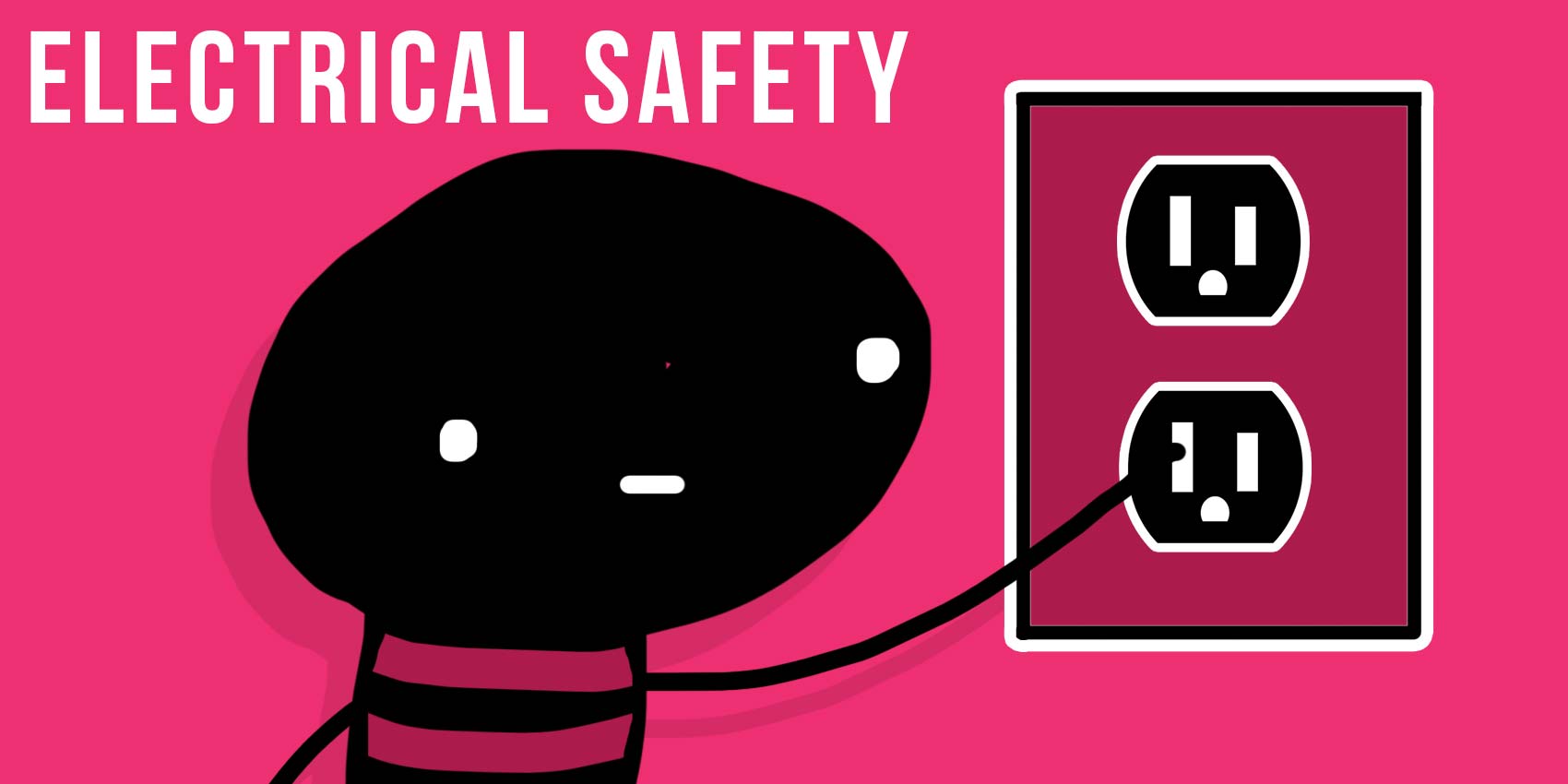04 Aug Electrical safety

Faulty wiring and overloading electrical circuits are main causes of fires. Make sure not to overload the electrical system in your home or room. Just what does that mean? It means being careful about how many items you have plugged in to your electrical outlets. If every socket in your room has adapters and extension cords running out from them, you might be in danger of demanding too much electricity from those sockets. If you do need more sockets, try using a power strip (one of those devices with an on/off switch and a row of sockets) instead of an extension cord. Power strips have built in fuses that will turn the power strip off before creating a spark that could cause a fire.
To prevent fires and accidents in your home, here are the Do’s and Don’ts of Electricity Use:
Do:
- Do unplug appliances when you’re not using them
- Do cover outlets with safety caps when not in use (especially in homes with small children)
- Do turn off the power to a light bulb when changing the light bulb.
Don’t:
- Don’t create a path of electrical cords under rugs or furniture
- Don’t use electrical appliances near water – never take a bath and blow dry your hair at the same time!
- Don’t reach into water to recover a dropped appliance unless it is first unplugged
- Don’t overload extension cords with too many plugs
- Don’t put a metal object into a toaster to retrieve bread while it is plugged in.
- Don’t ever put your finger or any other object (like a screw driver) into a socket. Only plugs go into sockets.




Post Question:
Which one of these Do’s have you forgotten to do before? Are there any Don’ts that you do?
Answer the post question here
What's being said